General
Guidelines for Online Research Proposal and Thesis Defence
Published
6 years agoon
By
Mak Editor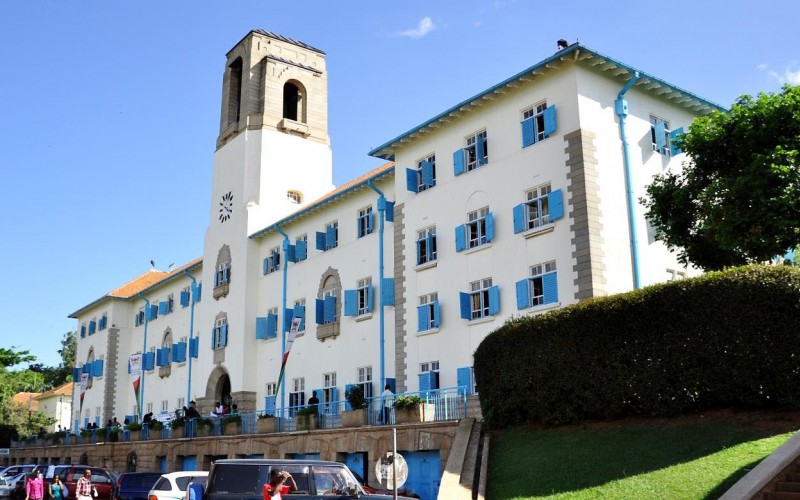
The higher education landscape is rapidly changing, the technological rise of the 21st-century and widespread integration of those technologies into our society, combined with access to the internet has integrally changed graduate research proposal and thesis examination/defence approaches. The rapidly changing landscapes call for a review of the research proposal/thesis examination methods in order to keep up with the times and incorporate integrated technologies into the learning modal, these technologies aren’t going to go away, they’ll continue to be integrated into our society and it’s time to embrace them for the advantages they bring. With the heavy integration of online technologies, the University will be able to improve the teaching and learning processes, information retention, engagement, responsibility and academic integrity.
Virtual and blended approaches have become important because they help to break down the traditional walls of examination, and now with access to present day technologies and resources we can tailor the examination experience to the prevailing conditions.
The Makerere University policy and regulations for the examination of research dissertations and theses provide for three forms of defense, namely, face-to-face; blended; and/or online technology. Traditionally, the Makerere University’s thesis examination policy required that all participants be physically present in the room where the thesis defense is taking place, however, under exceptional circumstances, videoconferencing is permitted provided that the following conditions are met:
- The general University regulations governing graduate research proposal and thesis examination/defence will apply (ref. Mak Graduate Hand book available at www.rgt.mak.ac.ug)
- A suitable space and technology for the videoconference should be designated before the proposal and thesis defense. The technology should ensure system stability and quality of sound and image during the examination.
- Contact the Directorate of Information and Communication Technical Services (DICTs) for audio and videoconference technical support for the duration of the defense.
- Inform the Director, Directorate of Research and Graduate Training in advance of an upcoming online research proposal or thesis examination. In this notification letter, the Principal/Dean/Chair should indicate in writing he/she has read and understands the regulations and rules for online examination/defence.
- Videoconference software must be used that allows all participants to see and hear each other during the entire examination/defense.
- Online participants must connect using hardware and network connections that ensure that all participants are visible and audible and that the connection is stable and available throughout the scheduled time of the defense.
- Examination by ordinary cellular telephone (Audio only) is not permitted under any circumstances.
- Conducting a practice run one week prior to the defense to ensure that participants are comfortable using the technology is highly recommended.
- Maintain a good balance between web-conference security (to avoid disruptions, i.e. ‘web-bombing’) and allowing for an open public participation in the defense.
General Considerations
- It is the responsibility of the Department to facilitate the web/teleconference-based defense;
- To ensure that the candidate knows how to use the software platform, the Chair and candidate should conduct a test meeting prior to the defense.
- Virtual research proposal and thesis defenses should adhere to the normal University requirements and procedures as much as possible;
- The candidate and the examiners are encouraged to use a headset to reduce audio feedback, and to use an ethernet connection to the internet instead of WiFi.
- The PhD Thesis defenses are open to the public audiences, and specific video connection instructions will be distributed to the University community in advance of the defense.
- At the discretion of the Chair of the examination committee, a defense in progress may be stopped and rescheduled, ideally within one week if technical difficulties prevent the student, Chair or examiners from participating.
Before the Examination/defense
- The Chair opens the meeting 15 minutes before the scheduled start of the defense. All participants should join the meeting at least 10 minutes before the defense begins.
- The Chair should ensure that late participant arrivals do not distract the candidate once they start their oral presentation. Alternatively, the Chair can lock the meeting after the oral presentation begins.
- At the start of the defense, the Chair will explain the format of the defense, including the time allowed for the oral presentation and set the ground rules for participation.
- It is advisable that the candidate should send their presentation materials to the Supervisor and Chairperson ahead of time in case technical difficulties prevent projecting them during the teleconference.
- To avoid distracting the candidate during their oral presentation, examiners and audience members’ microphones and camera should be turned off.
During the Examination/defense
- The Chair should reminds the candidate and examination committee of the regulations. The Chair could project the slides on behalf of the candidate.
- Audience members can either ask their question via the tool, in which case the Chair can turn on their video and microphone and invite them to interact directly with the candidate.
After the examination/defense
- At the end of the question period, the Chair will ask the audience to leave the meeting and invite the candidate to either leave the meeting or isolate them from the other participants in the “lobby” depending on the software platform used.
- Each examiner will individual assess and score the candidate’s performance. No vote will be recorded for an examiner who was not able to attend the defense. If an examiner must leave early due to technical difficulties, they can be allowed to vote via email at the Chair’s discretion.
- The Chair will ask the examiners to sign the Examination Report. More details on digital signatures shall be provided by the DRGT.
- The Chair will invite the candidate to return to the meeting and inform them of the outcome of the examination/defense.
- If the candidate passes but revision of the thesis is required, the Chair will provide written comments to the candidate. All examiners must agree on the required changes. Optional changes that the candidate should consider prior to submitting the final report to the DRGT.
- If the candidate fails, the Chair will provide written comments on the oral defense performance.
- At the committee’s discretion, the candidate may be given a second attempt to defend the proposal or thesis.
Guidelines and best practices for the Principal/Dean/Chair
In advance of the examination/defense, the Chair
- Consult with the student to select the video conference program to be used. At the time of the defense, the Chair should be the host/point person for any technology difficulties. Please do not leave this to the student, even if Chair is sure the student is more adept at technology.
- Be knowledgeable of the ICT facility especially on how to allow the student to share slides and control the presentation.
- Consider offering a “test run” with the student to ensure that the technology works and that they are comfortable using it to present their findings and answer questions.
- Ensure that the student maintain audio-video connection throughout the examination.
- Be responsible for ensuring that the requirements for online participation are met and that the online participation was uninterrupted or, if interrupted, that the defense was paused until the situation was fully restored.
At the defense
- All participants should be in the examination room at least 15 minutes before the scheduled start time.
- Don’t multitask during the research proposal or thesis defense. Many examiners often do this in the online environment, but this is not a regular online meeting, it is an examination. The student defending has spent years in anticipation of this examination/defense.
- Chair has the authority to discontinue the online defense at any time if they judge that online participation is interfering with the proper conduct of a rigorous and fair defense.
- If one or more participants is dropped from the connection, or if audio is lost, the defense must be paused until the connection is restored. If the connection cannot be restored, the Chair must suspend the defense until it can be rescheduled.
- Chair will introduce the candidate and the examination committee members; just as you would in a live defense (this is also a final check that all the audio/visuals work).
- Put a brief the agenda/rules in the chat window as a reminder of the examination rules.
- Audio-only participation by either the examination committee members and the student is not permitted.
Guidelines and best practices for the candidate/student defending
In advance of the defense
- The student should arrange to distribute all visual materials in advance of the defense
- Make sure you know how to use the chosen video conferencing site (WebEx, Zoom, Microsoft Teams).
- Share your slides with your Supervisor before the start of the defense. Ensuring someone else has them and could potentially share them if necessary is a good back up plan.
- If you have notes or a presentation, practice how you will setup and deliver that beforehand. You may want to arrange your screen so that you can see your committee
- To ensure high quality and full access to web-conference features, the candidate should participate in the defense using a laptop or desktop computer.
- Plan your physical space for the defense to ensure that there is enough light so that you can be seen without a shadow; avoid glare, shadows, or an overly cluttered backdrop, and Use headphones is encouraged, to reduce any potential background noise.
At the defense
- When delivering the presentation, sit and be sure that your webcam has a good shot of you from the shoulders up. In a live defense, you would probably be standing, but that will not work here since you will not be as clearly visible.
- Even though you are, sitting and you are communicating via videoconference, your gestures and nonverbal communication still matter. Just as in a face-to-face examination, practice to avoid all those verbal fillers that may clog your communication.
Guidelines and best Practices for the examination committee members/Panelists
- Do a test run, and consult DICTs and time to arrange the camera and lighting in advance.
- Use your video to the extent that your internet connection allows, rather than a still image or your name.
- Please mute your microphone unless you are speaking.
- The examination committee members evaluate the candidate’s presentation, the quality of the research proposal or thesis as well as the candidate’s response questions.
Guidelines and best practices for the public audience:
- After the defence, examination committee members have completed their rounds of questioning, and if time permits, the audience will have an opportunity to submit questions in writing using the chat feature.
- Please keep the microphone muted at all times.
Troubleshooting
- Ensure there is a back-up phone number for all required participants in case there is a problem with the technology. While University policy does not allow for participation via phone, being able to reach participants by phone can help troubleshoot a solution.
- If all else fails, notify the Director DICTS of the issue by other means (e.g., email, text).
Please follow these directions for planning and conducting an online/virtual proposal or thesis examination. These directions provide procedures and technical guidelines for running a virtual oral research proposal or thesis examination using videoconferencing technology. These directions do not replace the University regulations governing research proposal or thesis examination. Then Chair is responsible for understanding and conducting examination in accordance with the University regulations.
The following recommended directions explain how to set up a video-conference examination, and ensure that the defense runs smoothly and securely.
Process for planning and conducting a videoconference for Graduate Research proposal and Thesis examination/defence
Contact point in case you need further clarification of these regulations and procedures:
You may like
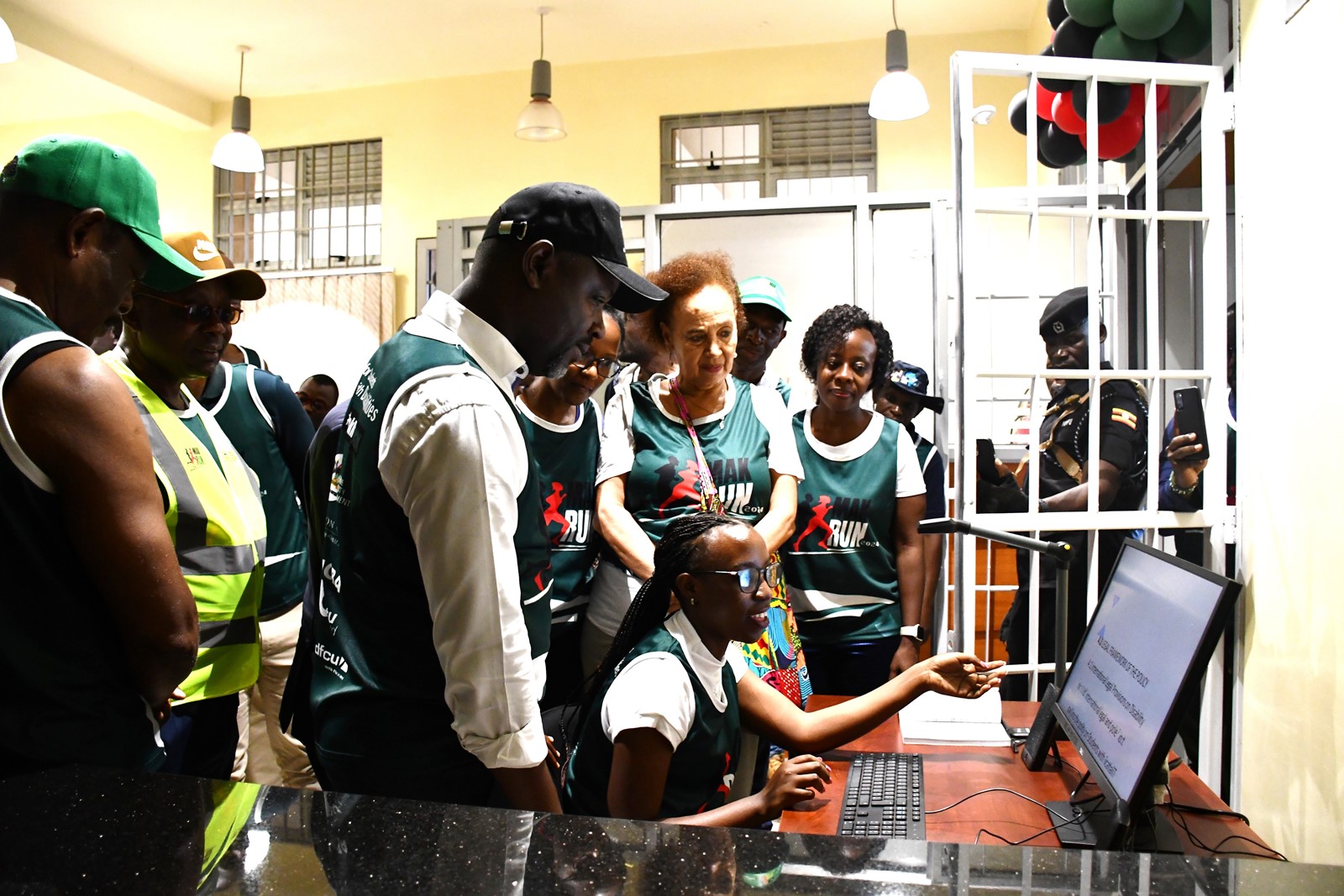
Students with disabilities at Makerere University have been requested to stop seeking for special attention and instead look for solutions and opportunities for personal growth.
This was during a mental wellness, inclusion and safeguarding session organized by the Dean of Students office and the Mastercard Foundation Scholars Program at Makerere University.
Addressing students on mental health and disability inclusion, Mr. Marvin Ggaliwango, a lecturer at the College of Computing and Information Sciences (CoCIS), noted that if the students stop complaining, they will become empowered to take charge of their own development, build resilience and engage confidently in both academic and social environments.
“Turn your lived experiences into tools for innovation. Stop complaining and start creating solutions for yourselves. You are the one living this life, and that gives you the authority to be an expert. When you develop a solution, it doesn’t just benefit you, it helps others too, by removing barriers,” Mr. Marvin Ggaliwango, said.
He encouraged students to see themselves not as victims of circumstance, but as active participants and co-creators of the inclusive environment they wish to experience.
“Learn how to communicate effectively and humbly. If you have a problem, express yourself clearly. Do not isolate yourself or feel resentful. You are not defined by disability, you may face disadvantages, but you still have ability,” he encouraged.
Throughout the session, students listened attentively as he emphasized the importance of self-awareness and personal responsibility, urging them to understand their strengths, acknowledge their limitations and take deliberate steps toward personal growth while contributing positively to the University community.
“We must enhance and ensure that our mental health is number one. Always choose yourself first. Choose what makes you happy and protect your peace. If you are at peace with yourself, your academics will improve. There is a strong link between mental wellness and academic success,” Mr. Ggaliwango, noted.
In his speech, Mr. Musa Mwambu, the Disability Inclusion Advisor at Light for the World Uganda, called upon the students with disabilities to enhance and ensure that their mental health is prioritized.
“As students living with disabilities, sometimes you over expect, because you have a disability you should be given, listened to and when people do not listen to you, you attribute it to your disability, get it from me, even those without disabilities are not listened too. Things are not happening to you because of your disability it is because of the world we live in. Everything that happens to you can happen to others,” Mr Mwambu, noted.
“Have fun with your life. Make yourself happy and be smart. Present yourself in public confidently wherever you go. The way you carry yourself can improve your mental health and how others perceive you,” Mr. Mwambu said.
He reminded the students that gaining admission to Makerere is itself a milestone.
“There are many people without disabilities who have never stepped at Makerere University. Find something that empowers you and hold on to it. You may have a physical impairment, but if you are brilliant in class, you can lead discussions and inspire others,” he added.

During the session, Dr. Rodney Rugyema, the Acting Principal Warden, welcomed the students back from the long holiday. He assured them that the University is committed to their safety and well-being while on campus.
Dr. Rugyema emphasized that the University has systems in place to protect students, both physically and psychologically and encouraged them to report any concerns promptly.
“When you are at the University, you are not on your own, we are always here for you. For us to engage you on mental wellness and inclusion, we want you to be in the right state of mind, whole and complete,” Dr Rugyema, said.
He added: “We are here to empower you and we are calling upon you not be a risk for yourself and always be able to detect risks that are likely to affect your mental health and works towards avoiding them and reporting them to ensure that the University manages them before they escalate into real harm whose impact is more serious than you can think,”
During the session, Ms. Diane Nabikolo Osiru highlighted the University’s broader commitment to safeguarding.
Safeguarding at Makerere University refers to measures put in place to promote safety and wellness of all students, staffs and other stakeholders.
“At Makerere University, safety is not a luxury for few. but it is a right for every student. As the semesters begins, we are urging you to learn how to identify signs of harm or abuses and report them to the appropriate safeguarding contact points,” Ms Nabikolo, said.
For support in case of any harm or abuse, International and Refugee Students, can access support through the Advancement and International Office, while Students with Disabilities, can utilize the Disability Support Center. Those with personal and emotional challenges, can visit the Counselling and Guidance Centre.
In his speech, Dr Joab Agaba, a Lecturer in the College of Computing and Information Sciences, guided students how to report risks and incidences to the MakSafeSpace, the e-reporting platform complimenting the other University traditional reporting channels.
Mr. Henry Nsubuga, the Manager of the Counselling and Guidance Center, shared practical strategies for coping with stress effectively including time management, setting realistic goals, seeking support from peers or counsellors.
Students speak out
Shanitah Nahamya, 2nd year student of the Bachelor of Adult and Community Education
“I have learned how to respectfully and appropriately engage with students with disabilities. In the past, I often felt pity when I encountered them, but now I understand that what they need is not pity, it is respect, support, and equal opportunity.”
Guo Dorothy Geri, 1st year student of the Bachelor of Commerce
“I have learnt how to use inclusive language. Before offering help to a student with a disability, I will first ask them, because not all the time do they need our help. You might think someone wants to be helped to cross the road, yet they are waiting for someone.”
Valentines Doris Aduka, 1st Year student of the Bachelor of Biomedical Science
“I have been calling students with disabilities special names, thinking it was kind. But I have learned that they do not want to be treated differently or labeled in a special way. What they value most is being treated like everyone else, with respect, dignity, and fairness.”
General
Strengthening Global Partnerships to Advance Research, Innovation, and Graduate Training: Makerere University Hosts Delegation from the University of Warwick
Published
3 days agoon
February 19, 2026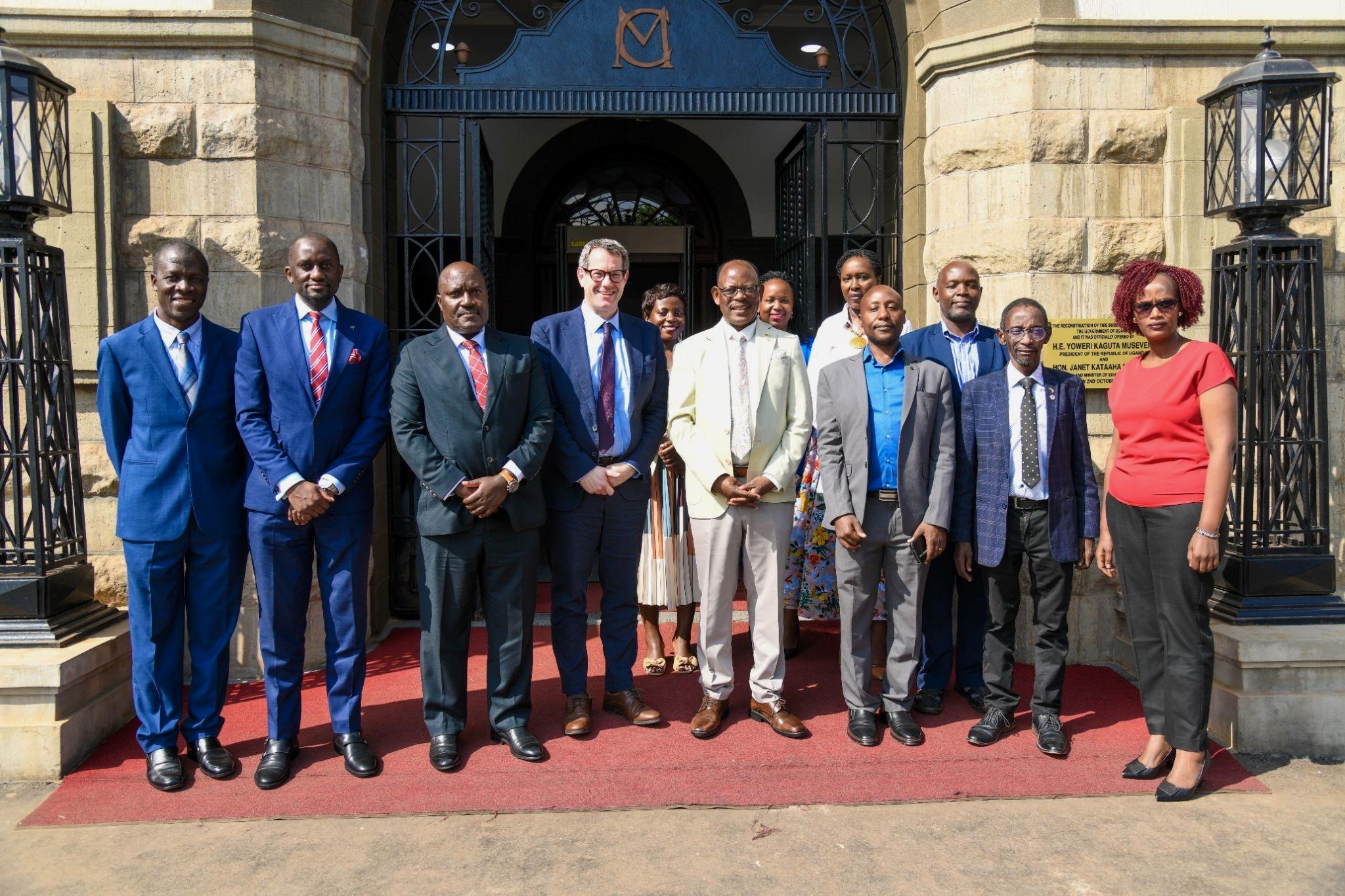
Makerere University continues to deepen its global engagement agenda through strategic partnerships that enhance research, innovation, and graduate training. On Friday, 13th February, 2025, during a recent engagement with a delegation from the University of Warwick (UK), university leaders, researchers, and administrators explored potential collaborations to address pressing development challenges and strengthen institutional capacity.
Expanding Collaboration in Research and Innovation
Welcoming the delegation, Prof. Fred Masagazi-Masaazi, Chairperson of the Makerere University Research and Innovations Fund (Mak-RIF) Grants Management Committee, emphasized the growing dialogue between Makerere University and the University of Warwick. He noted that ongoing discussions are focused on resource mobilization to support research and innovation, as well as building sustainable academic exchanges for both staff and students.
Dr. Roy Mayega, Mak-RIF Coordinator, together with Mrs. Phoebe Lutaaya Kamya, Deputy Coordinator, and members of the Mak-RIF team, highlighted the Fund’s role in catalyzing collaborative research and strengthening partnerships that translate research into societal impact.
Mr. Simon Kizito, Deputy University Secretary, outlined key areas identified for collaboration, including joint research and innovation initiatives, benchmarking visits across disciplines such as law, science, and ICT, and student exchanges designed to strengthen applied research skills. He also pointed to opportunities for training Makerere staff in specialized areas such as tropical diseases and innovation ecosystems, drawing lessons from Warwick’s strong linkages with industry partners located within its campus.
Makerere’s Strategic Priorities and Global Role
In his remarks, the Vice Chancellor underscored the longstanding relationship between Makerere University and the University of Warwick, dating back to the early 1980s, initially through staff training and more recently through collaborative research.
He highlighted Makerere’s historic contribution to leadership development across Africa and beyond, and the University’s continued growth following faculty rebuilding efforts in the 1980s, which have strengthened its research capacity. Today, Makerere has over 1,300 academic staff, more than 1,000 of whom hold PhDs, positioning the institution to play a leading role in knowledge production.
The Vice Chancellor also outlined major thematic areas where partnerships are critical:
- Climate change and food security: Researchers at the College of Agricultural and Environmental Sciences (CAES) are developing drought-resistant and high-yield seed varieties to address changing weather patterns and food insecurity.
- Public health and infectious diseases: Uganda faces frequent outbreaks of diseases such as Ebola and Marburg, and Makerere has built strong capacity in outbreak response and tropical medicine. The University’s medical school and the Infectious Diseases Institute (IDI) continue to play a pivotal role in research and treatment.
- Peace and conflict studies: Through initiatives such as the Rotary Peace Centre, Makerere contributes to training global leaders in conflict resolution.
- Climate-sensitive macroeconomic modelling: Makerere recently hosted a conference in collaboration with the Ministry of Finance, Planning and Economic Development to advocate for climate-responsive macroeconomic modelling and to plan for the establishment of a Centre of Excellence in this field.
- Innovation and technology: The University’s innovation ecosystem has produced notable outputs, including Africa’s first electric vehicle and ongoing work to expand incubation facilities to enable students to graduate with viable enterprises.
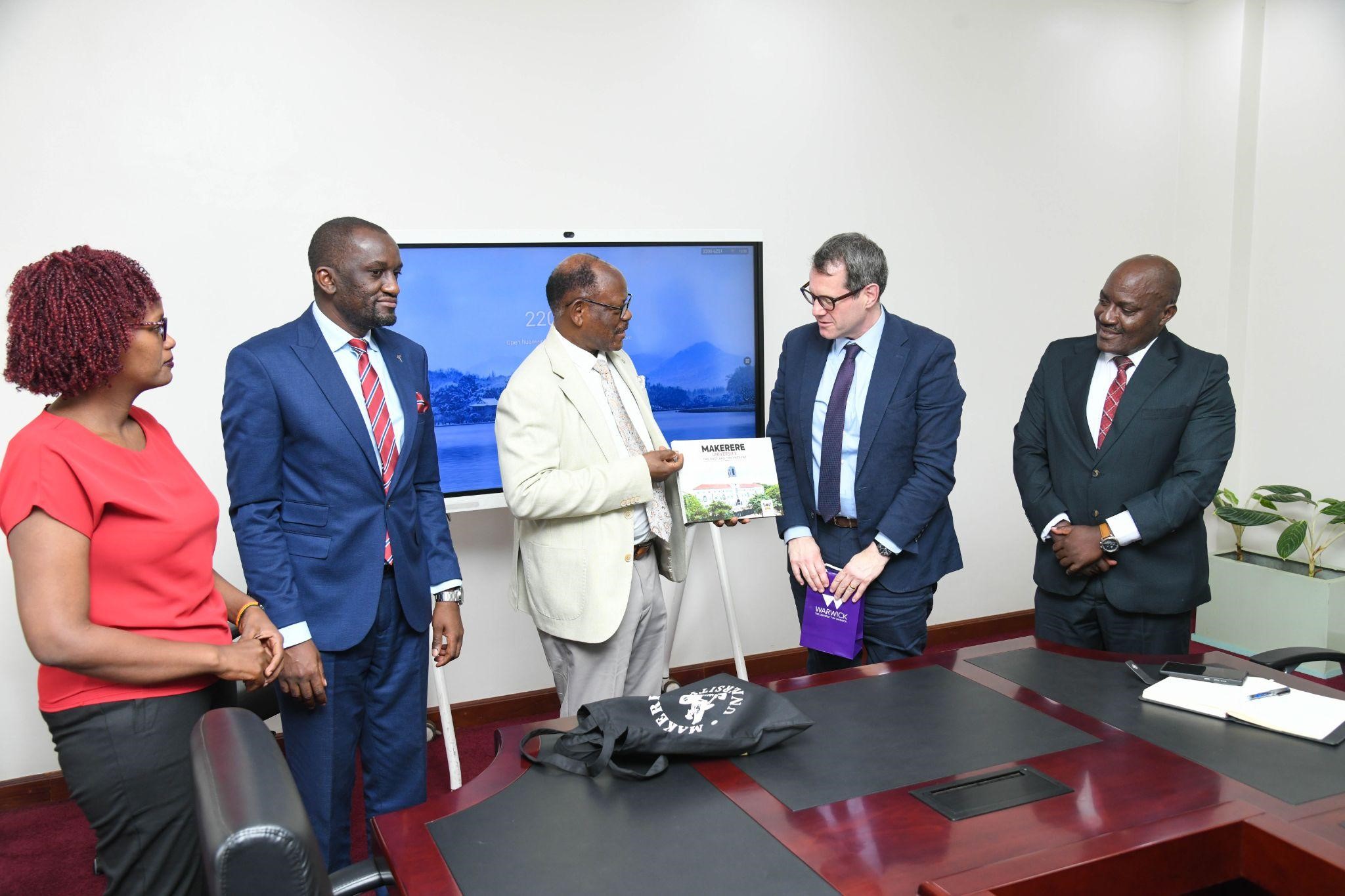
The Vice Chancellor emphasized that addressing youth unemployment remains a central priority, noting that innovation, entrepreneurship, and graduate training are essential to building stable societies.
He further stressed the importance of expanding graduate education. Africa currently produces a small proportion of global research output, and increasing PhD and Master’s training supported by international partnerships remains critical to accelerating knowledge production and development outcomes.
Internationalization and Shared Learning
Speaking on behalf of the University of Warwick, Professor Daniel Branch, Deputy Vice Chancellor, reflected on Warwick’s own institutional journey, noting that its growth has been driven by a strong focus on internationalization, innovation, and research. He expressed Warwick’s commitment to building productive partnerships with African universities, including Makerere, to advance joint research, training, and innovation.
Professor Branch also highlighted the importance of university-industry linkages, citing examples such as collaborations with major manufacturing firms that provide practical training opportunities and inform curriculum development.
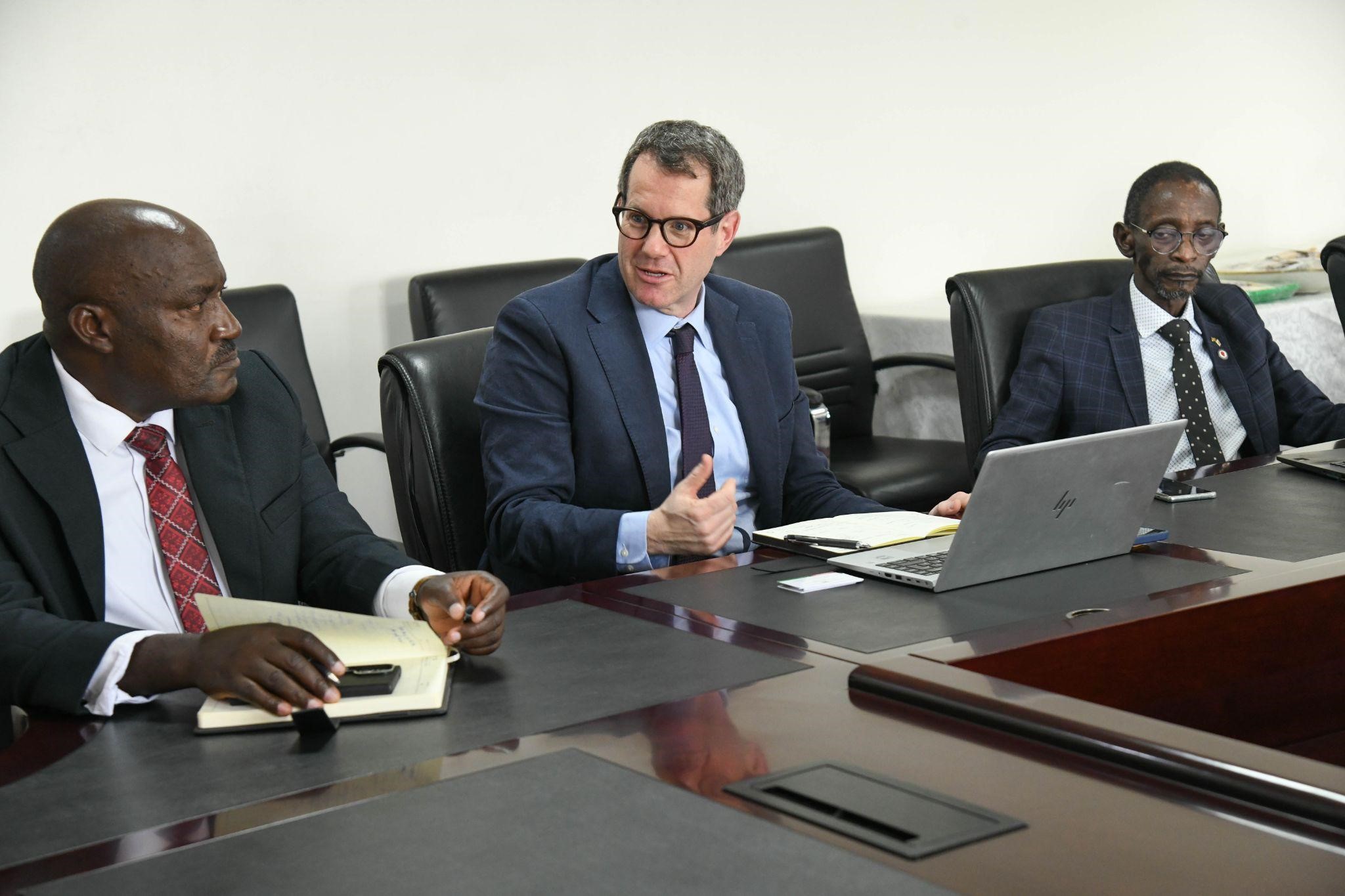
Showcasing Research and Innovation at CEDAT
A second session of the engagement was held at the College of Engineering, Design, Art and Technology (CEDAT), where academic leaders and researchers presented ongoing work across multiple disciplines.
Presentations included:
- Development of a solar water pump through reverse engineering (Dr. Edmund Tumusiime)
- Crane Cloud, a locally developed cloud-computing platform (team from the College of Computing and Information Sciences)
- Profiling gaseous emissions associated with burnt bricks (Dr. Nathan)
- Integration of centralized grid and decentralized renewable off-grid systems: a techno-economic analysis (Dr. Abubaker Waswa)
- Innovation and digitalization pathways for affordable housing in Sub-Saharan Africa (Prof. Stephen Mukiibi)
The session was attended by CEDAT leadership, including the Principal, Prof. Moses Musinguzi, as well as deans and heads of department from engineering, built environment, and industrial and fine arts. The day’s activities were concluded with a tour of Makerere University’s Innovation Hub.
The engagement reaffirmed Makerere University’s commitment to building strong, mutually beneficial partnerships that accelerate research, strengthen graduate training, and drive innovation. As global challenges such as climate change, public health threats, and youth unemployment intensify, collaboration among universities remains essential to developing scalable, evidence-based solutions.
Through partnerships such as the one Makerere University and the University of Warwick hope to activate through a Memorandum of Understanding in the near future, Makerere continues to position itself as a leading research-intensive university dedicated to transforming society through knowledge, innovation, and global cooperation.
Caroline Kainomugisha is the Communications Officer, Advancement Office, Makerere University.
General
Mastercard Foundation Scholars embrace and honour their rich cultural diversity
Published
3 days agoon
February 18, 2026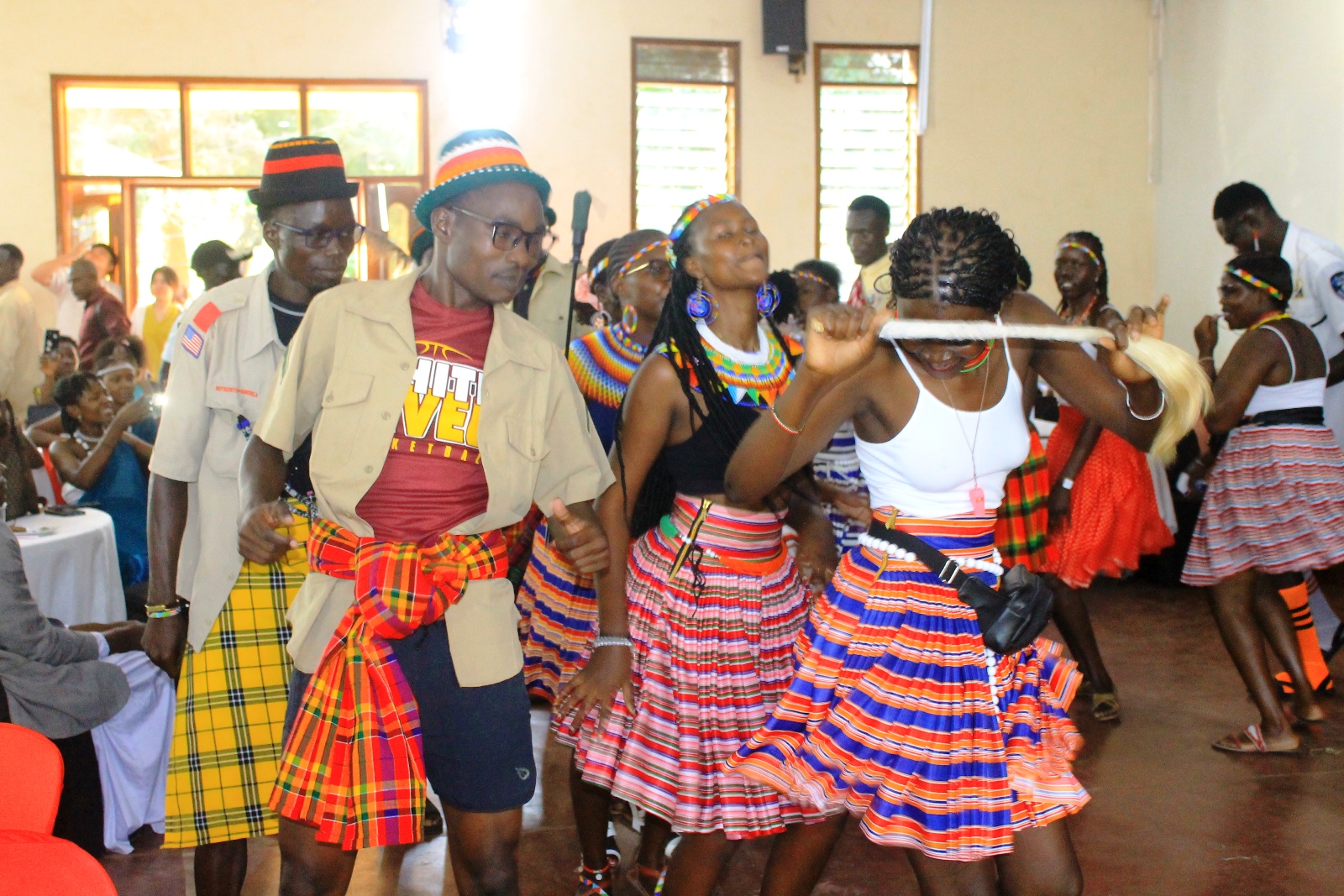
On the evening of Friday, 13th February 2026, the Scholars of Mastercard Foundation embraced the new semester with enthusiasm and celebration, showcasing their rich cultural diversity at the annual cultural dinner. This event not only fostered a sense of community but also highlighted the importance of cultural exchange and understanding among the scholars. The purpose of the cultural dinner is to foster unity in diversity within the Scholars community and to enable young people to appreciate and respect each other’s cultural differences.
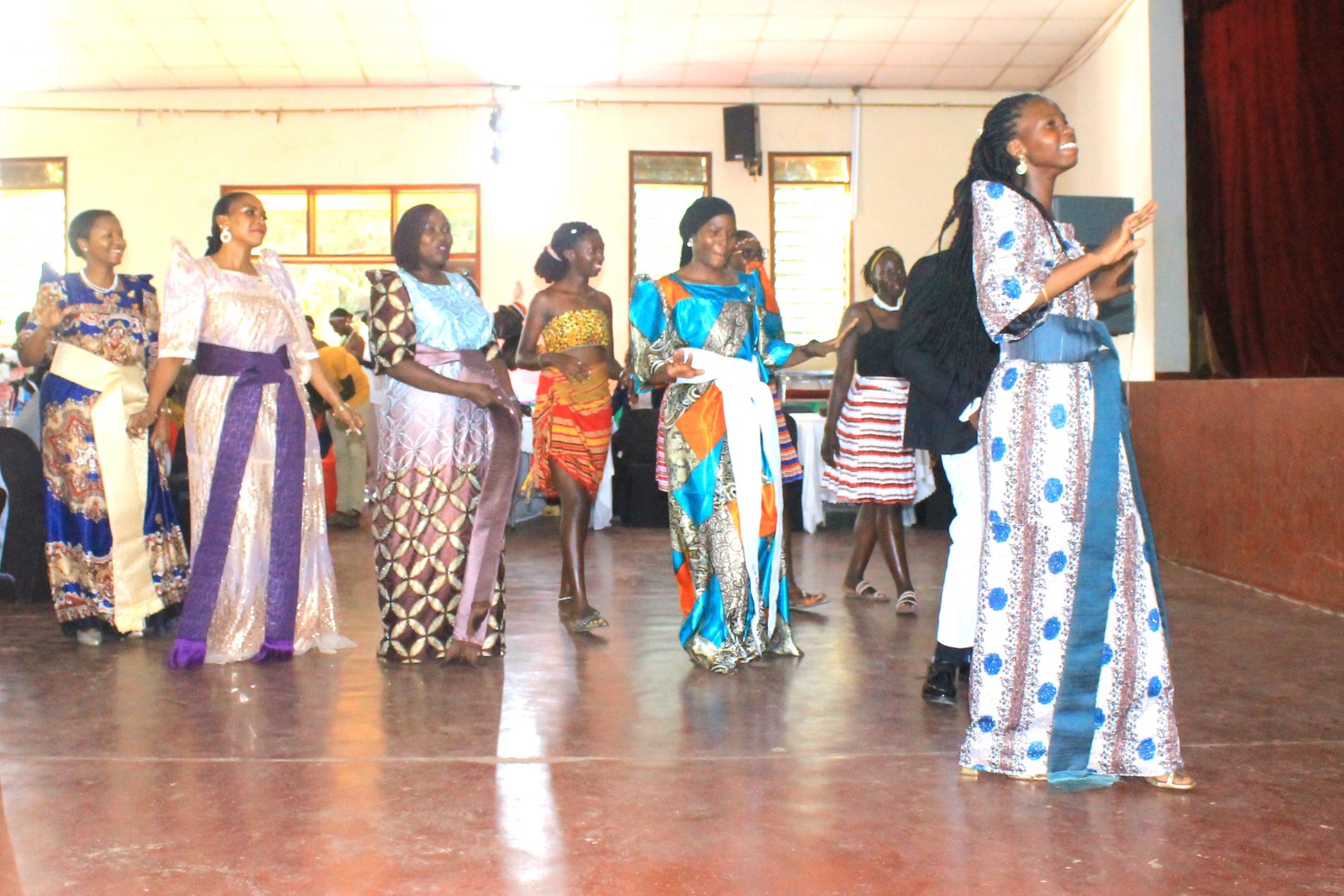
The Mastercard Foundation Scholars community at Makerere University is a vibrant tapestry of countries, cultures, and backgrounds. In recognition of this richness, the Program team has proposed organising an annual cultural dinner to kick off each new semester. This event aims to achieve several important objectives:
- Promote mutual understanding and cross-cultural appreciation among Scholars.
- Celebrate and highlight the unique cultural identities within our community.
- Encourage confidence and creativity through a dynamic talent showcase.
- Foster a sense of unity and excitement as we embark on the new academic semester together.
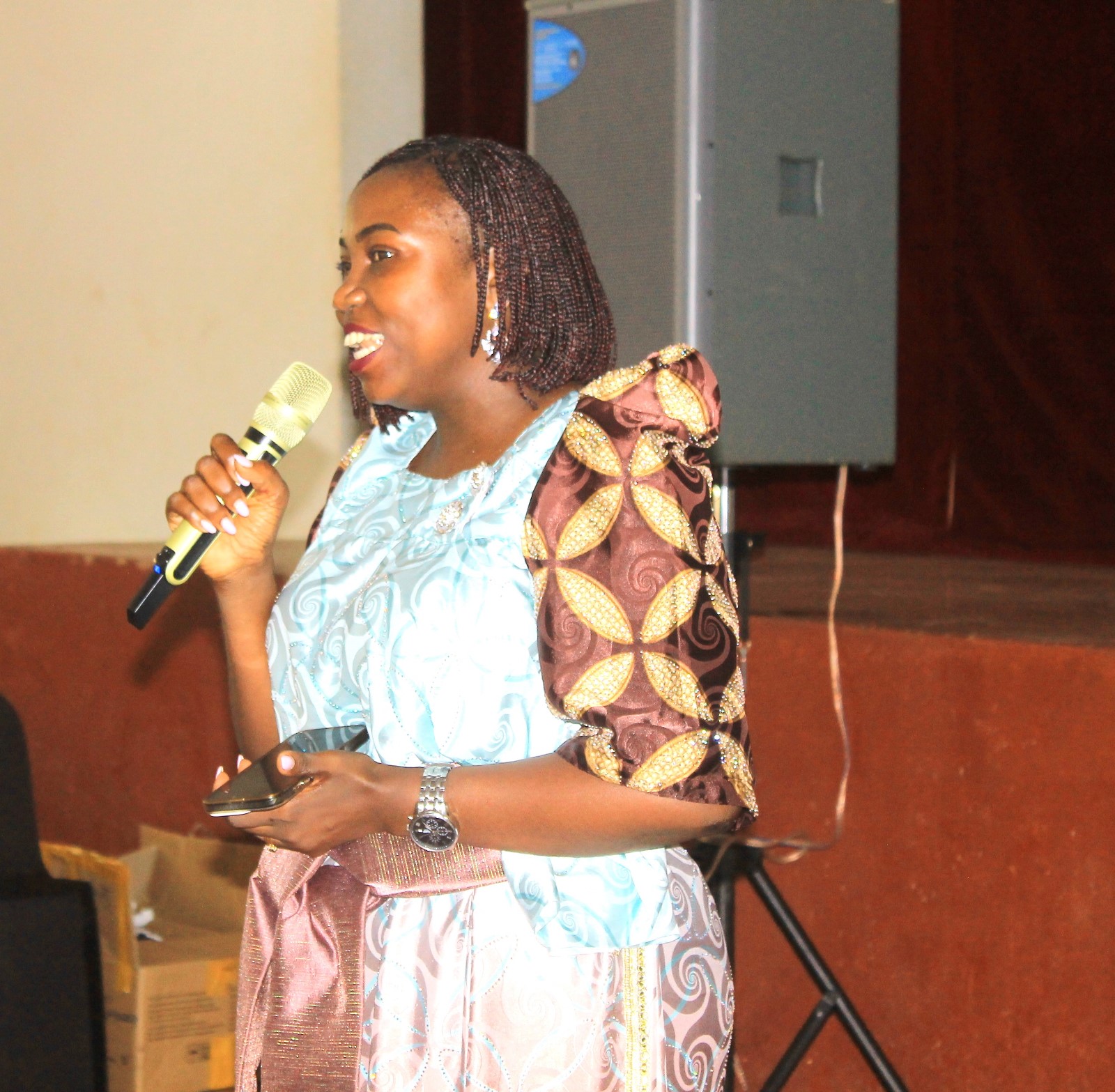
During the event, the Scholars proudly showcased their diverse cultures through a vibrant display of traditional attire, engaging dances, delectable dishes, and meaningful expressions in their native languages. The event showcased a rich tapestry of cultures, including the Baganda from Central Uganda; the Banyankore, Bakiga, Batooro, and Banyoro from Western Uganda; the Acholi from the North; the Karamojong from the Northeast; and the Basoga and Bagisu from the Eastern region, among many other indigenous tribes in Uganda. Additionally, attendees enjoyed cultural performances from South Sudan, Rwanda, and the Democratic Republic of Congo, celebrating the unique heritage of each community.
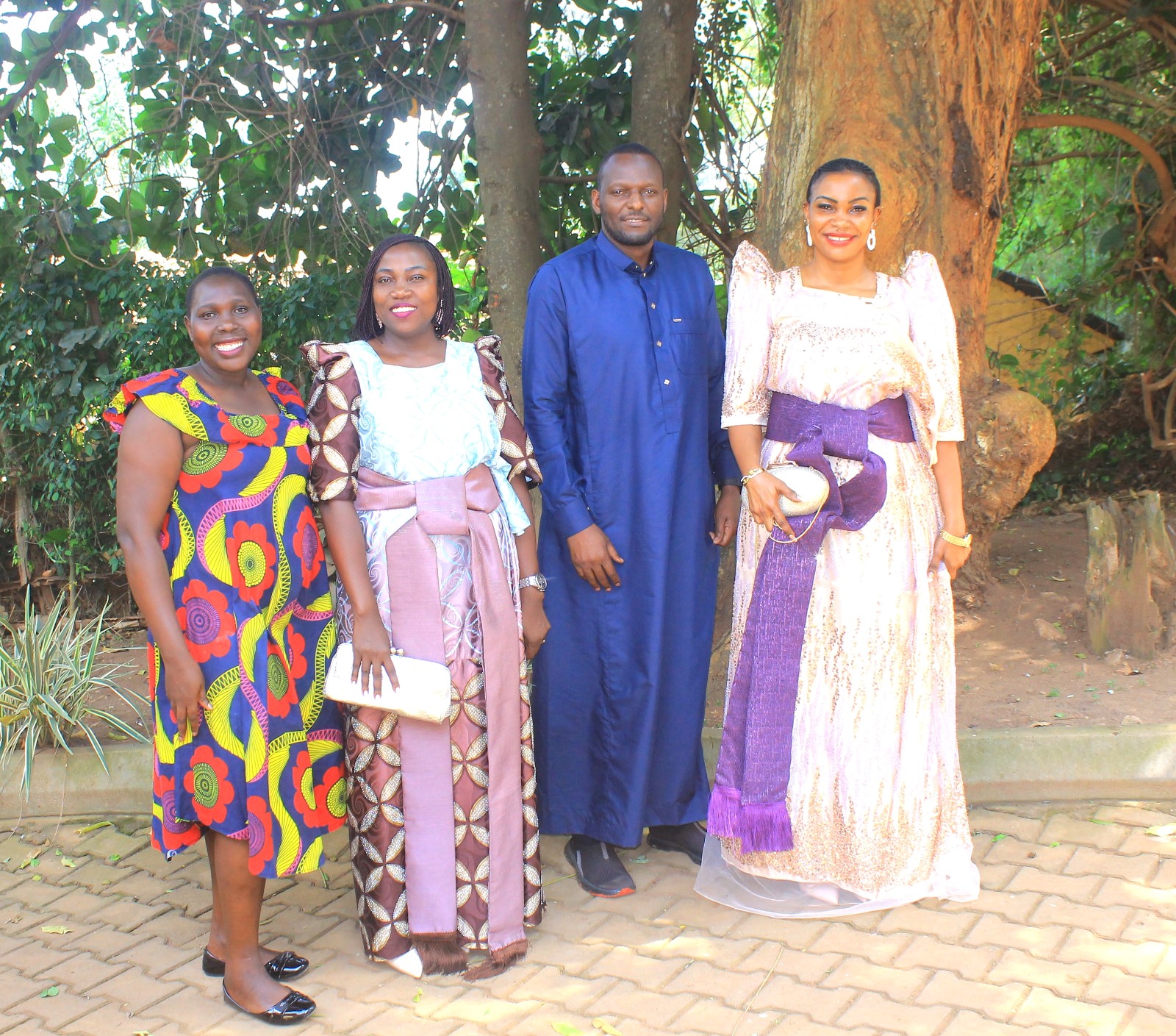
The event also featured a vibrant showcase of cultural attire, accompanied by traditional songs and dances. Attendees enjoyed cultural dress modelling, engaging performances, art displays, and interactive quizzes, culminating in exciting prizes awarded to outstanding performers. This diverse array of activities contributed to a rich celebration of creativity and cultural exchange.
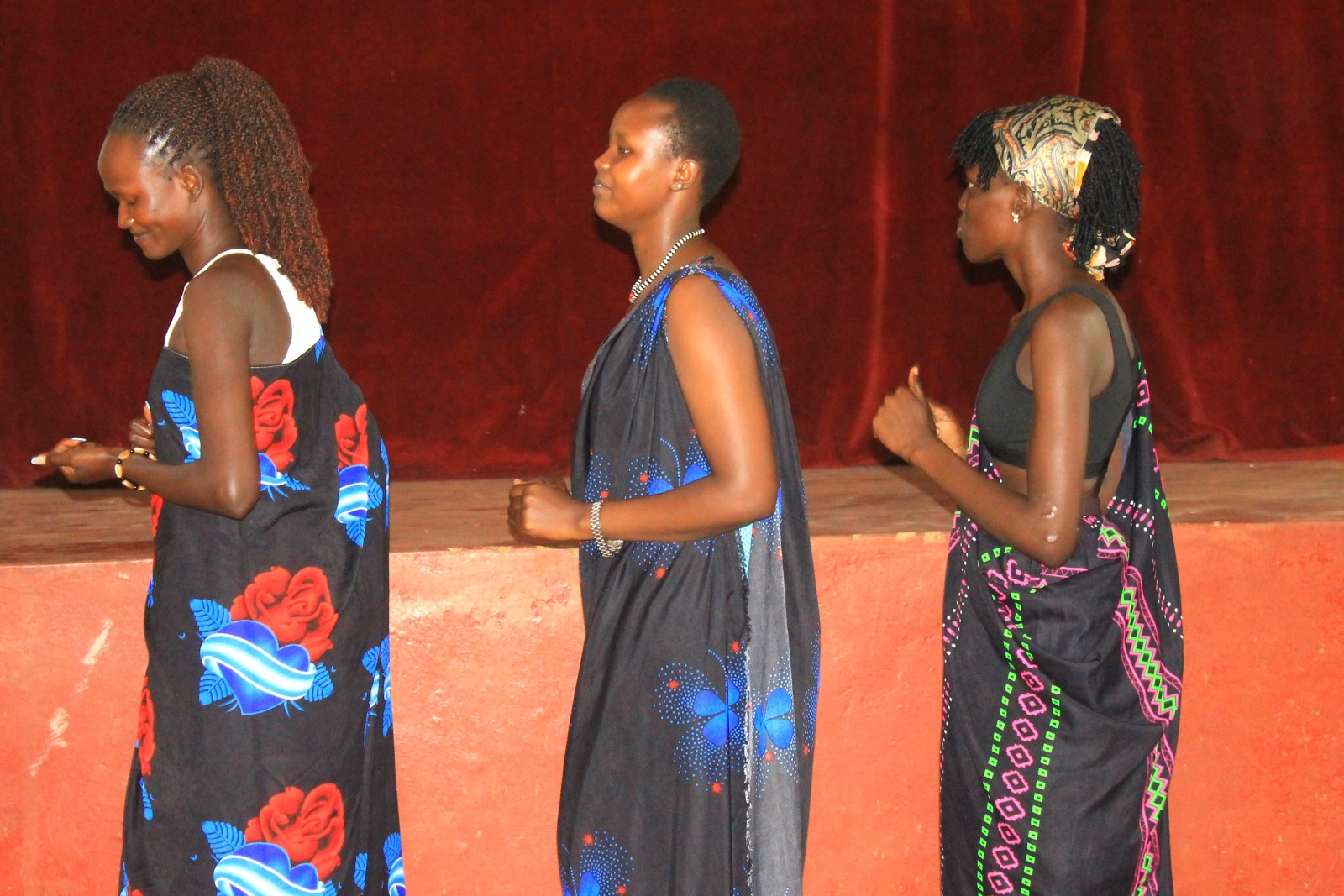
The Mastercard Foundation Scholars Program at Makerere University is committed to fostering holistic development, community building, and leadership among Scholars. At the start of each semester, the Program Team hosts a cultural dinner to reconnect the Scholars community, share key Program updates, and create an inclusive space to strengthen belonging and engagement. The cultural dinner is a critical platform for raising awareness of the need to appreciate and respect cultural diversity.
Bernard Buteera is the Principal Communications Officer for the Mastercard Foundation Scholars Program at Makerere University.
More Photos from the Dinner
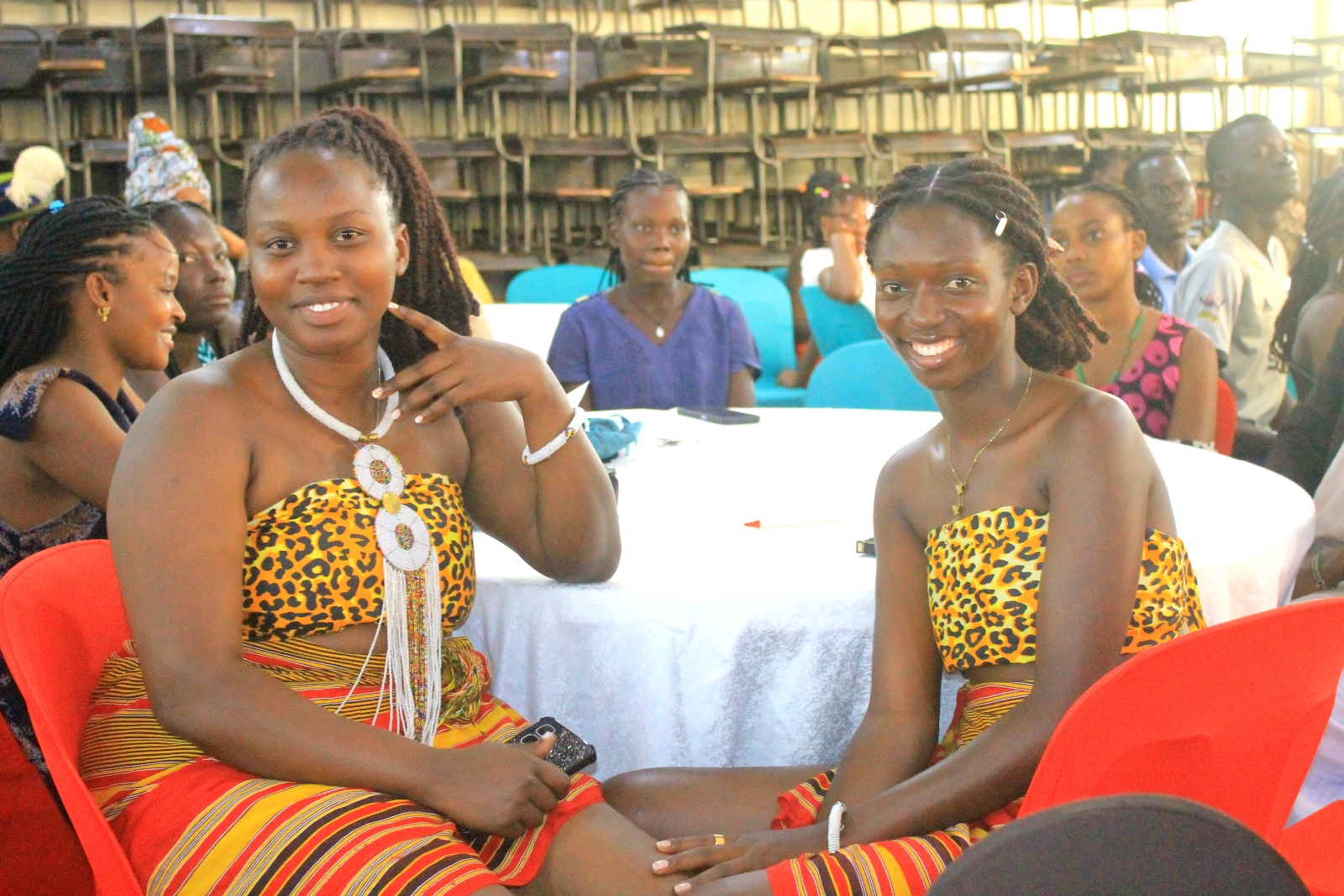
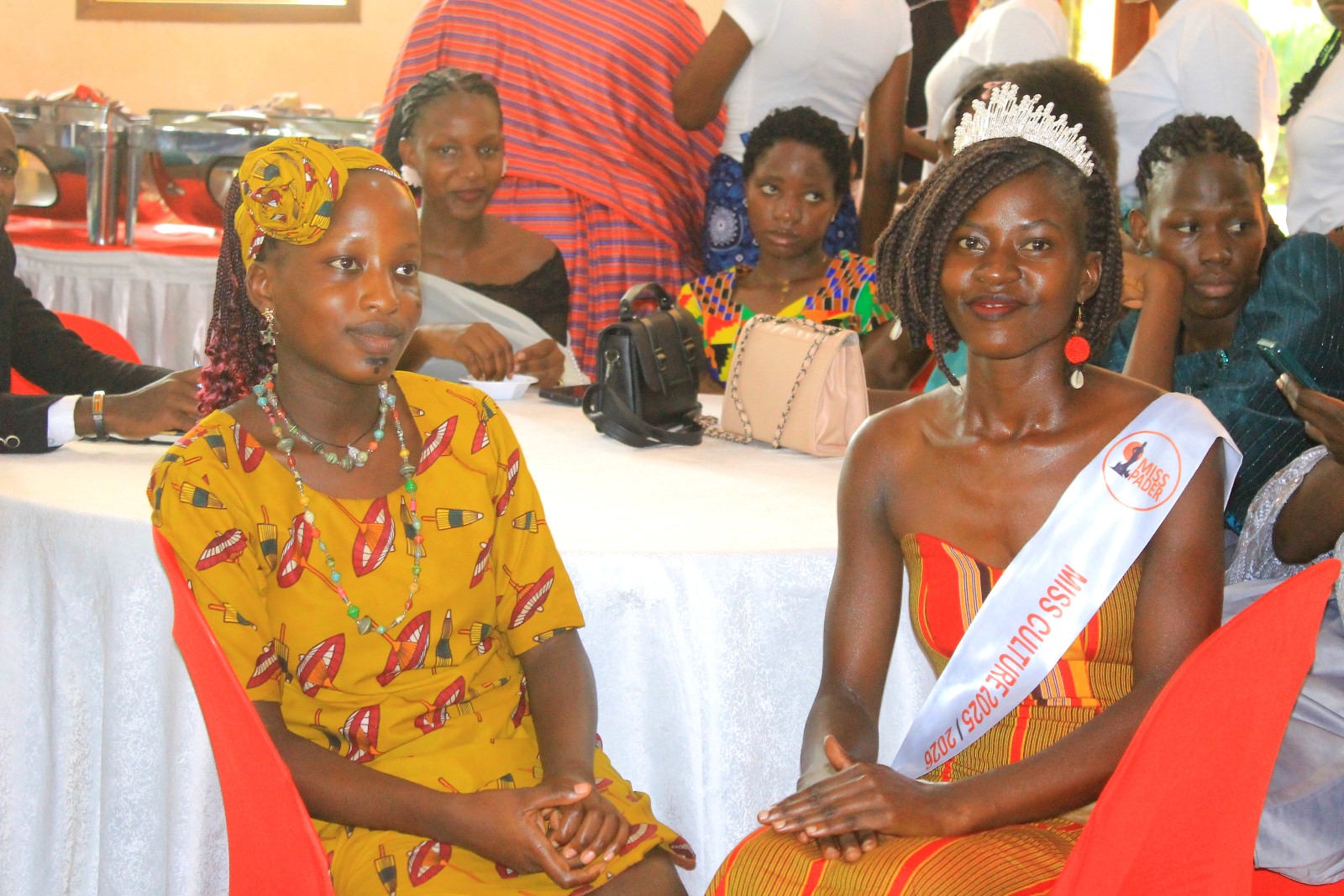
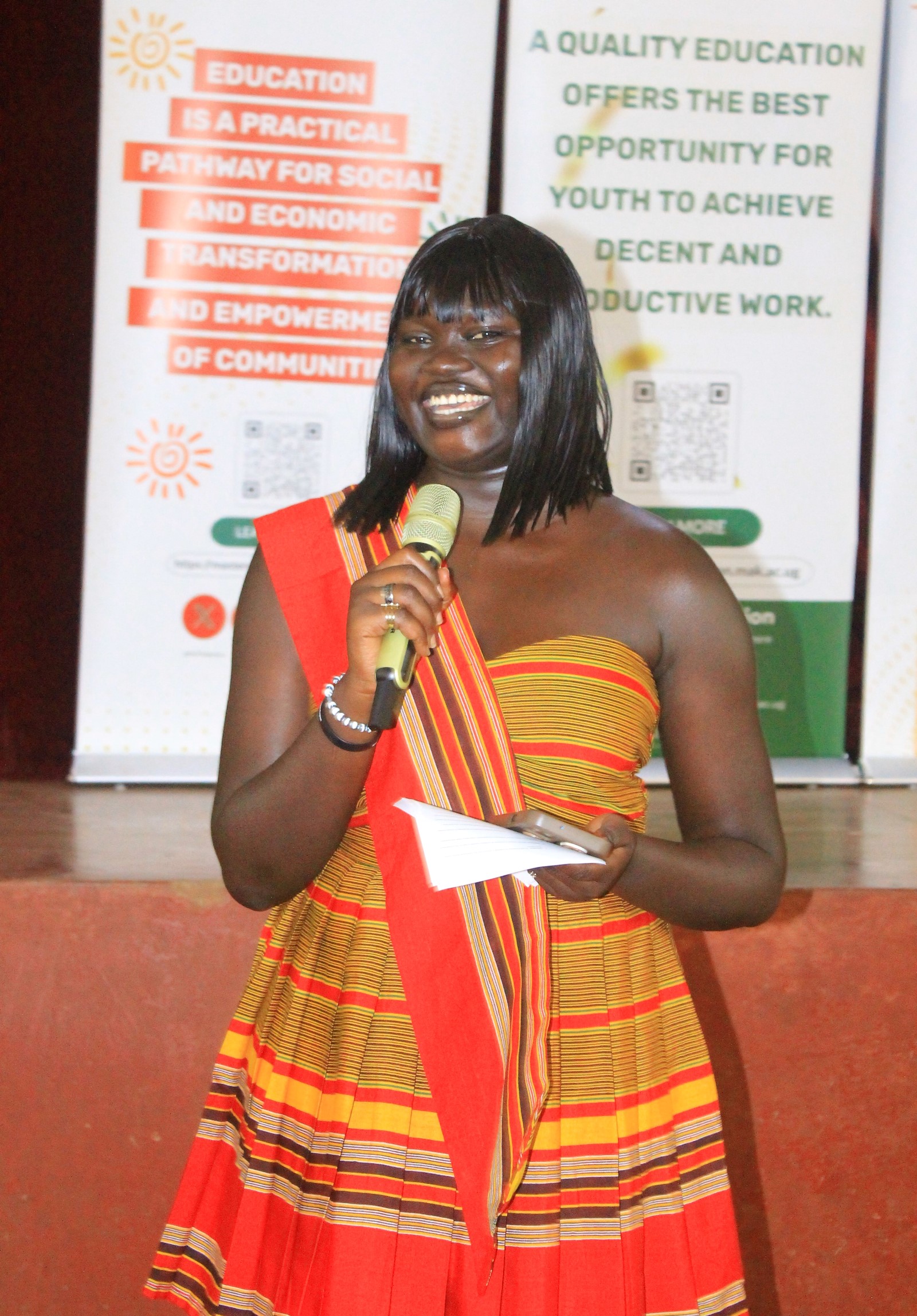
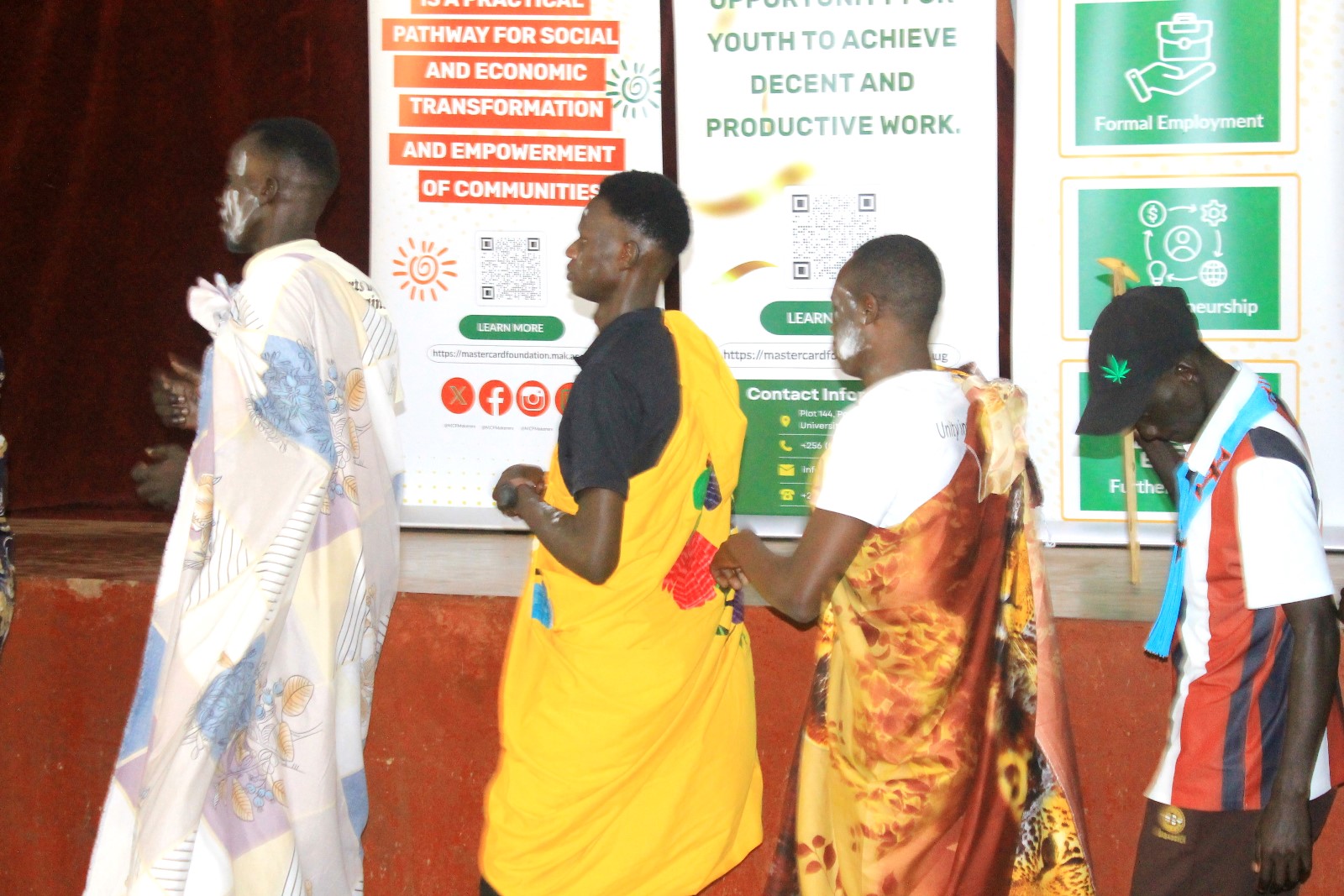
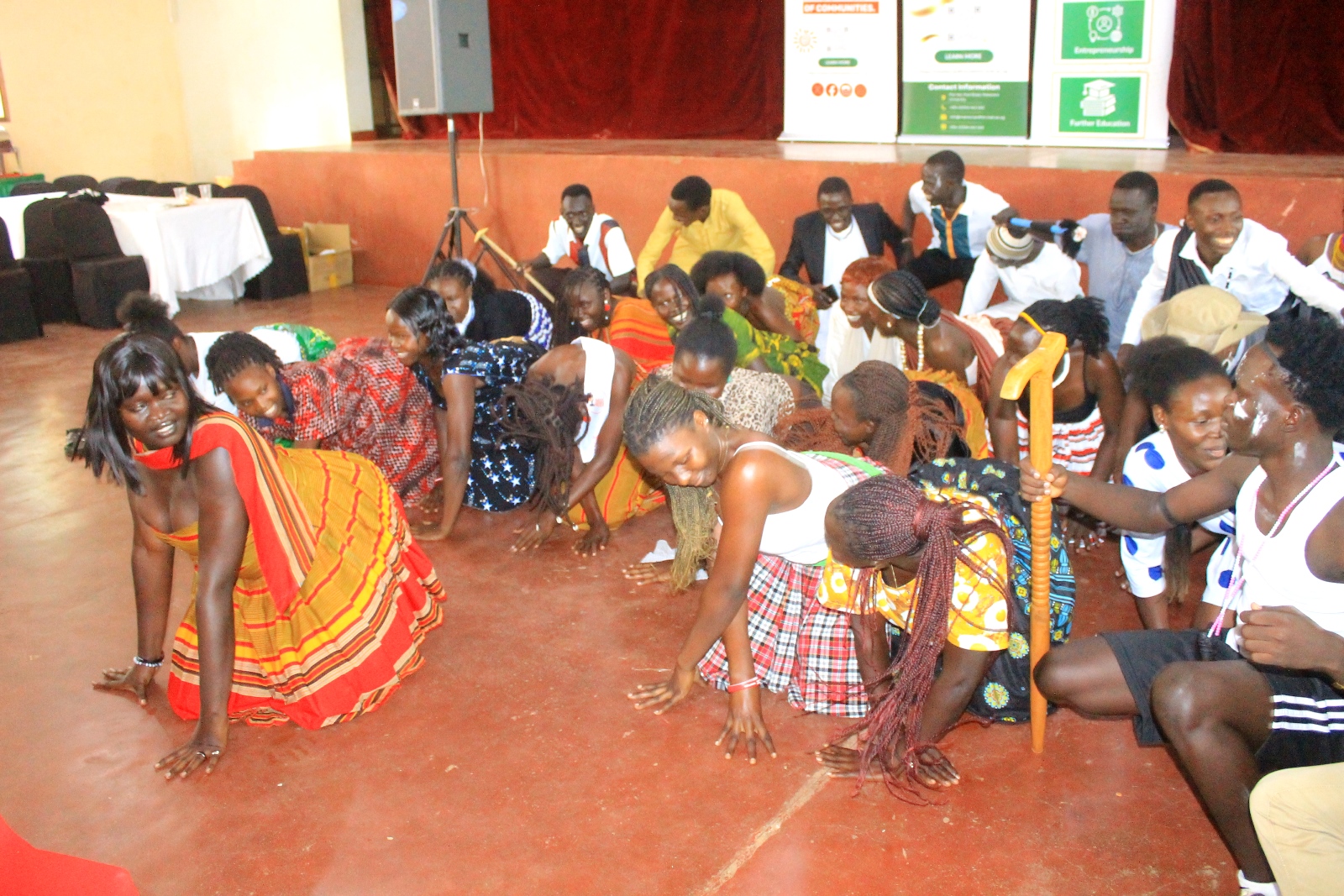
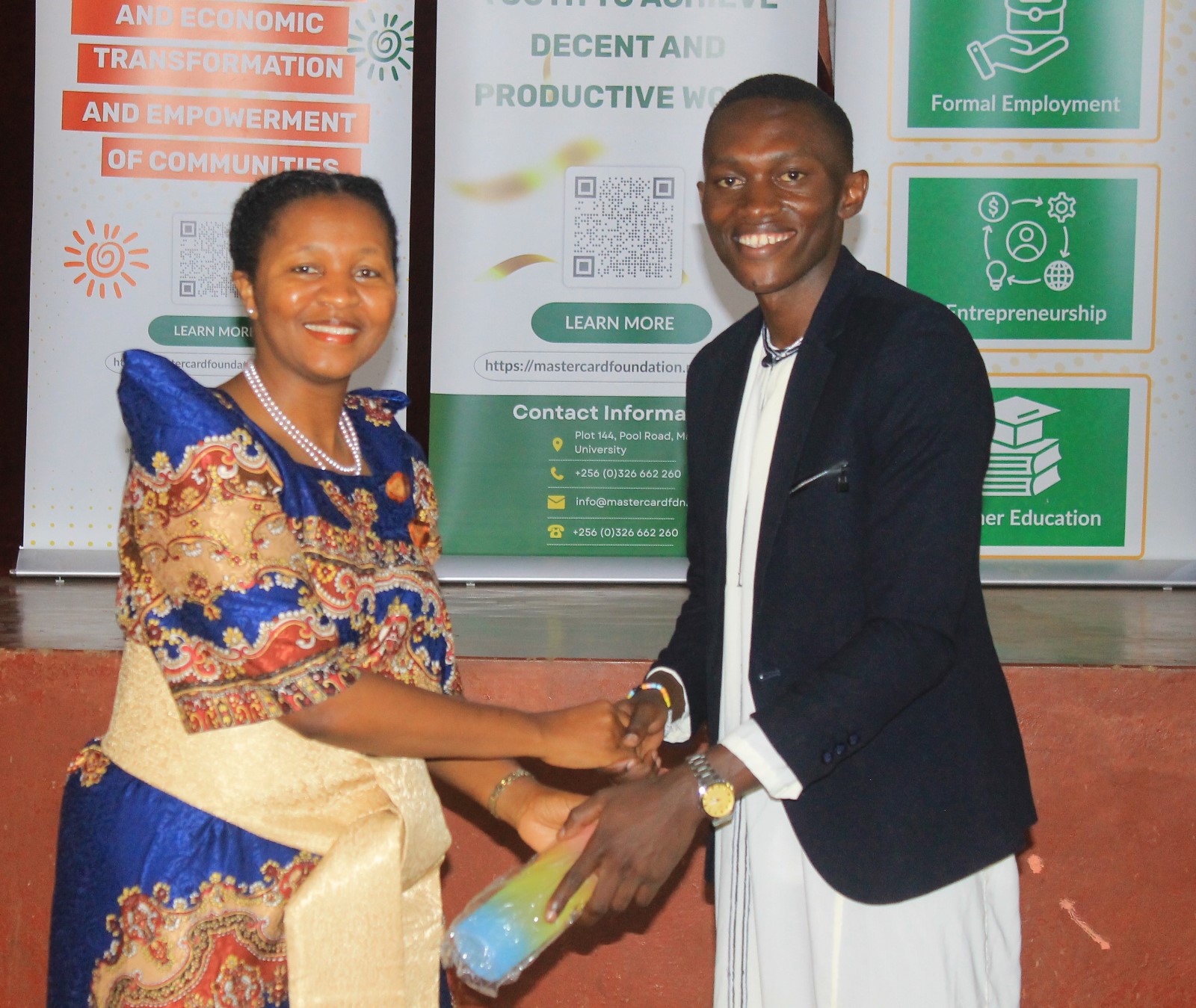
Trending
-

 General2 weeks ago
General2 weeks agoAptitude Exam (Paper 1) Results for the Mature Age Entry Scheme 2026/2027
-

 Health3 days ago
Health3 days agoUganda has until 2030 to end Open Defecation as Ntaro’s PhD Examines Kabale’s Progress
-

 Health2 weeks ago
Health2 weeks agoHow Jimmy Osuret Turned Childhood Trauma into Evidence for Safer School Crossings
-

 General2 weeks ago
General2 weeks agoFor Youth by Youth – Call for Second Cohort Applications
-

 General3 days ago
General3 days agoMastercard Foundation Scholars embrace and honour their rich cultural diversity
